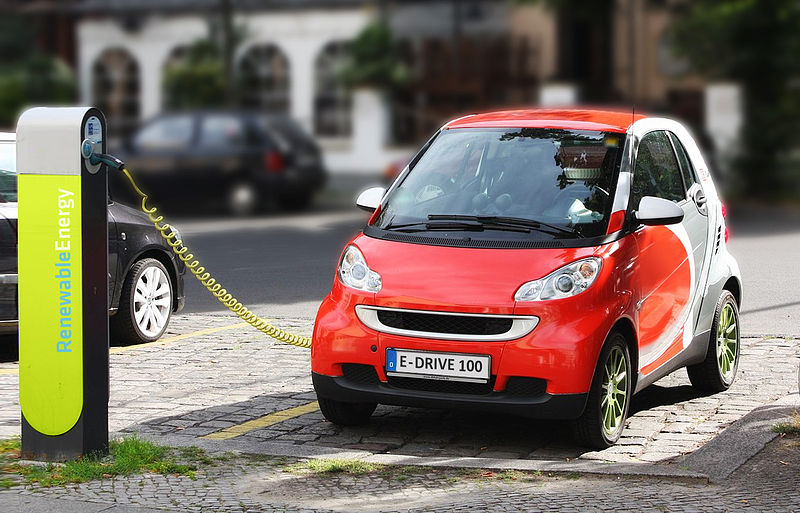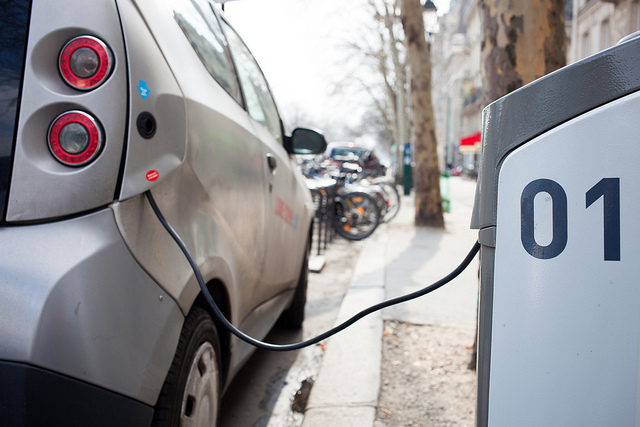
The environment, though it never quite left anyone’s lips over the past few years, is seeing a big interest surge this month. It probably has a lot to do with Trump’s recent decision regarding the Paris Agreement. Most seem to think that it’s a harmful, retrograde decision – though it’s worth noting how little the Paris Agreement really does for the environment (its focus was on making the politicians involved look good!). In any case, politicians across the globe seem to be very unhappy with the decision, and some have even begun to take further action regarding the health of the environment.
In the UK, there are decisions being made by the government that could have a very positive effect on the environment in the long-term. (Sure, there are bad decisions, too, but let’s keep to the positive for now!)
Any significant change for the better in terms of the environment needs to put something we love very much squarely in its sights: automobiles. Unless some significant change is made in this field, there’s really very little effect most policies will have on the environment. A switch to electric-powered cars is certainly on the agenda for most people, but the availability of such technology really isn’t as widespread as you may think, though demand is increasing all the time.
Manufacturers need more of an incentive to start making changes to their industrial processes so as to manufacture more electric cars than they currently are.
The UK’s current Secretary of State for Business, Energy and Industrial Strategy, Greg Clark, wants to place a priority on the development of electric automobile technology, with the government promising a £250 million injection into relevant research and development. This actually serves two purposes; it furthers interest and action in the field of environmentalism, but it also works as an incentive to have more car manufacturers building things in the UK. (This, admittedly, might be what concerns Clark more!)

In 2016, 1.7 million cars were produced in the UK. Of those, a mere 19,000 were electric. There were also 86,000 hybrid cars. Add those up and that means that less than 6% of cars produced in the country had any sort of significant use of electricity over fossil fuels at all. The UK creates even more engines than they do cars, with 2.5 million diesel or petrol engines created (over half of which are exported to other countries). Clark wants to see more electric batteries for cars being produced in the country.
[ad]
Such measures would not only increase the likelihood of electric cars becoming more widespread in the UK, but also, considering the UK’s exporting industry, across the world. So such a decision could end up being a pretty good one for the environment. (Although, as always, it’s worth pointing out that the manufacturing of electric cars could certainly do with a lot of improvement when it comes to its effect on the environment. Electric cars don’t exactly reduce your carbon footprint to zero, the way many make it out!)
A long-term goal – and, indeed, a very reasonable one, according the estimates by UBS – is to have one-third of all cars sold across Europe to be electric by 2025. The ultimate goal of many powers is to see every car sold across the world to be electric, as we reduce our reliance on cars that run on petrol and diesel. (Whether or not this will be achievable in the lifetime of anyone reading this seems to be up for debate!)
The CEO of Jaguar Land Rover, Ralf Speth, certainly seems to agree that all their cars should eventually either be purely electric cars or else hybrids that use internal combustion engines. Jaguar Land Rover has yet to release an electric car, but it is currently producing one. The Jaguar I-Pace, an electric five-seater hasn’t had a formal unveiling yet, but its Austria-based production has been documented (and spied upon). It’s anticipated that a formal reveal will take place at the Frankfurt Motor Show later this year.
Speth has also expressed interest in moving production of Jaguar’s electric-based vehicles to the UK, which will no doubt make Clark and many others supremely happy.
Some other countries seem to be taking a more hardline stance when it comes to the ‘switch’ from fossil fuels to electric. India, which has had a famous and long-documented problem with abject pollution, is perhaps the more controversial example of this. A report earlier this year suggested that the country aims to have all cars for sale in the country to be replaced by electric vehicles by 2030. A lofty goal indeed, to be sure.
So it’s becoming clearer, seemingly with every passing month, that both governments and car manufacturers are pretty serious about making the switch to electricity. So, at this point, there’s a question that should be pressing on the minds of all car enthusiasts and economists: how good is this going to be for the consumer? Yes, the environment is important, but it’s also worth remembering the extent to which consumers will be affected in terms of efficiency and price. For the most part, people talk often about the positives. And this is definitely worth mentioning because there are many positives – but what about the negatives?
There isn’t exactly a wide array of negatives when it comes to purchasing an electric car, but car insurance is certainly one thing worthy of a highlight. Though a lot of people don’t seem to know it, your average car insurance policy for an electric car is more expensive than that of other vehicles. In fact, some estimates have placed the cost difference as a 21% increase of cost when buying insurance for an electric version of a car versus the ‘regular’ version.
So why is the insurance more expensive? It’s certainly the case that great deals of insurance for cars are still available, electric or not; it’s just a case of making sure you take the time to do your research. In general, the higher insurance costs relate to two other problems consumers may have; the fact that the average electric car is more expensive than a petrol or diesel car (higher car values = higher insurance costs!), and the fact that it generally costs a fair amount more money to repair an electric car. Still, it’s worth noting that savings in all three of these areas can be found if one is willing to research their options.
The positivs have probably been relayed to you at some point already. It’s not just about the positive effect on the environment, though this is certainly worth highlighting. The increased costs are offset in great ways by the fact that many of the running costs are greatly reduced. The bulk of your fuel costs are jettisoned. And, indeed, with reliability of these cars being higher than that of most gas cars, you’re actually much less likely to need repairs.
Global demand for electric vehicles is rising very quickly, and this could end up being a very good thing. Over time, this should see the costs of these cars drop, and the same goes with insurance premiums and repair costs. Of course, as those familiar with supply and demand should know, these price reductions will only take place if supply increases so as to meet and exceed that demand. So it’s definitely worth keeping an eye on what’s going on behind the scenes when it comes to electric car and battery manufacturing. And, as it turns out, the politicians leading our countries seem pretty invested in making sure this process is a successful one.

